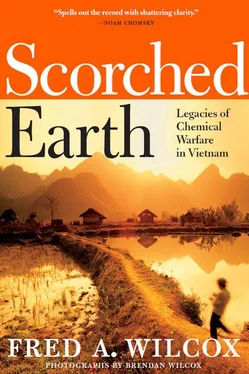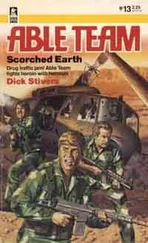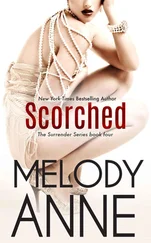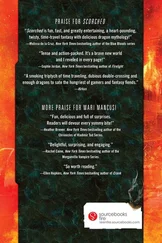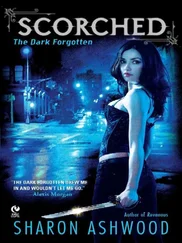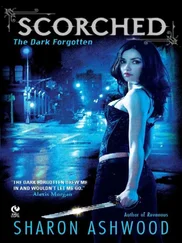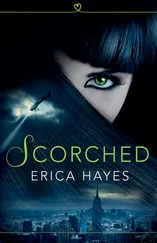MR. BROCK [lawyer for a defendant company]: We are making a fine distinction because Your Honor has asked us not to go into the question of causation, and yet, to respond to a claim that we knew that the spraying was going to cause harm. I think there is a distinction as to the historical fact and to what would have been known at the time, but I think, you know, the fact that it remains uncertain at best and in fact, it seems unsupported 40 years later after intensive scientific investigation is a pretty important consideration, and realizing people cannot have possibly known that the contrary was the case 40 years ago.
THE COURT: Well, that is a subtle point. It is an accurate point, I will take it into account. 3
The plaintiffs cannot establish that a binding international norm “prohibited private corporations from manufacturing and selling herbicides for military use”:
Even if forgoing instruments had created a binding prohibition on the use of herbicides during war prior to 1975—and they manifestly did not—they created no universally recognized prohibition on the manufacture and sale by private parties of herbicides intended for such use. Indeed, the general rule is that international legal norms impose duties or confer rights directly upon an individual human being. 4
We sit outside on a small terrace behind the kitchen. Trinh Kokkoris serves coffee and there’s a pastry from a local shop. It is a hot day in July. Planes lifting off from JFK International swallow our words. We wait until the noise fades, then continue our conversation.
Dean Kokkoris has been working on the Vietnamese class action lawsuit for many years, and he’s invited me to his home to talk about this case.
Dean grew up in Bayside, Queens, where his father owned a series of Greek restaurants. He attended Baruch College, City University of New York, intending to major in business, but, he laughs, “I changed [my father’s] mind after the very first class. Switched to psychology, and met Trinh. We were in Guys and Dolls together, she as a Hot Box Girl, and I played Rusty Charlie in a fedora hat and a pinstriped double-breasted suit.”
After graduation, Dean found a job as a paralegal at a big law firm, took the test to become a New York City police officer, and passed in the top ten percent of applicants. His parents and wife encouraged him to take the law school exam; he did, then turned down a scholarship offer from Brooklyn Law School.
“I was scheduled to take the police department’s psychological exam. Might not have passed that one. Why not go ahead and be a policeman? Retire after twenty years at half salary. But I decided to attend law school, was re-offered the scholarship, earned my degree, and kind of drifted, working as a summer associate at a midsize firm that represented a lot of companies like Amtrak, some municipalities. They liked me and extended an offer, but I wanted to work in the District Attorney’s office. Applied to all five boroughs, even to people I knew, but didn’t have any political connections.”
Dean opened a “kind of blue collar law firm with a friend,” and got involved with lawyers who practice labor law—wage and hour law, minimum wage, overtime, prevailing wage. “Workers who aren’t getting paid enough for what they do.”
Trinh fills the pastry dish and pours more coffee. Born in Saigon at the height of the defoliation campaign, she was seven years old when her family immigrated to the United States in 1975. She suffers from a lot of allergies, unusual in her family, and Dean wonders if her ailments have anything to do with Agent Orange. He knows that the US military sprayed Agent Orange close to Saigon, but thinks that Saigon might have been spared, even though the Rach Son stream in Cu Chi district feeds into the Saigon River, and food supplies coming into the city were probably contaminated with dioxin.
At one point in his career, Dean became quite interested in cases that the Center for Constitutional Rights was pursuing, using the Alien Torts Claims Act (ATCA).
“They’d brought a case against a military commander in Peru who was torturing people. In the 1990s, the Center also brought a series of cases against corporations using the ATCA, which allows individuals to sue corporations or persons for violations of international law. For example, grievous violations of international law, like the Center’s case against UNICAL on behalf of people living in Myanmar, or Burma. UNICAL entered into a joint venture with the Burmese military to build a gas pipeline, and they were using forced labor to construct this pipeline. They were drafting people from local villages that the pipeline was passing through and forcing them to work on this project, which is a violation of international law.”
Dean followed the case against Royal Dutch Shell, when the Center was trying to get that company to stop drilling in sacred Oragoni land in Nigeria. Royal Dutch Shell was accused of collaborating with the Nigerian military in the murder of Oragoni people.
“Then I saw a notice in the National Lawyers Guild asking if anyone was interested in bringing a case on behalf of Vietnamese who’d been exposed to dioxin, and when I saw that, I jumped.”
Dean had been on the Law Review at Brooklyn Law School, researching and writing about Bendictin, a pill that was developed for morning sickness. The FDA had approved Bendictin, and women who were taking it claimed that it caused birth defects. Dean was familiar with statistical techniques for determining cause, which is difficult to do, he realized, because the government and corporations do not test chemicals on human beings.
“So the thing is with these drugs or chemicals that may cause birth defects, miscarriages, cancer, is that the scientific causes are not known in the same way that scientists understand, say, infections.
“We test chemicals on animals, but you cannot necessarily extrapolate from animals to humans. Ideally what you’d want to do—you really wouldn’t want to do this—is conduct experimental studies with human beings. You’d have two groups: A control group and an experimental group. Give the drug to an experimental group and a placebo to the control group and see what happens.
“Of course we don’t do that. We wait until someone is exposed to a chemical or takes a pill, and then we find a similar group of people who have not taken this pill, or who haven’t been exposed to this chemical. We take into consideration other environmental factors in their lives—smoking, drinking, and exposure to toxic chemicals. And then we run statistical tests. The larger the group, the more power your study will have, and the more accurate your study will be, with a chance for a statistically significant difference between the group that was exposed and the one that was not.
“In the case of dioxin, with many people in different circumstances, you can see a ‘spike.’ Think about it. Veterans came back from the war in Vietnam, not knowing where guys in their unit might live. In many cases, they lost contact altogether with their fellow soldiers, but later these veterans from all over the country and the world begin to have similar problems—cancers, birth defects, and other illnesses. A veteran living in Montana could not have known about the problems a vet in New York or California is experiencing. Yet their stories are remarkably similar.”
Dean talks about the difficulties of conducting scientific tests that might prove causation. It’s really not possible to create ideal conditions, studies take many years, and like the tobacco companies who claimed for so many years that there was no real proof that smoking harms human beings, the chemical companies use similar arguments when they insist there’s no evidence that dioxin harms human beings.
Читать дальше
